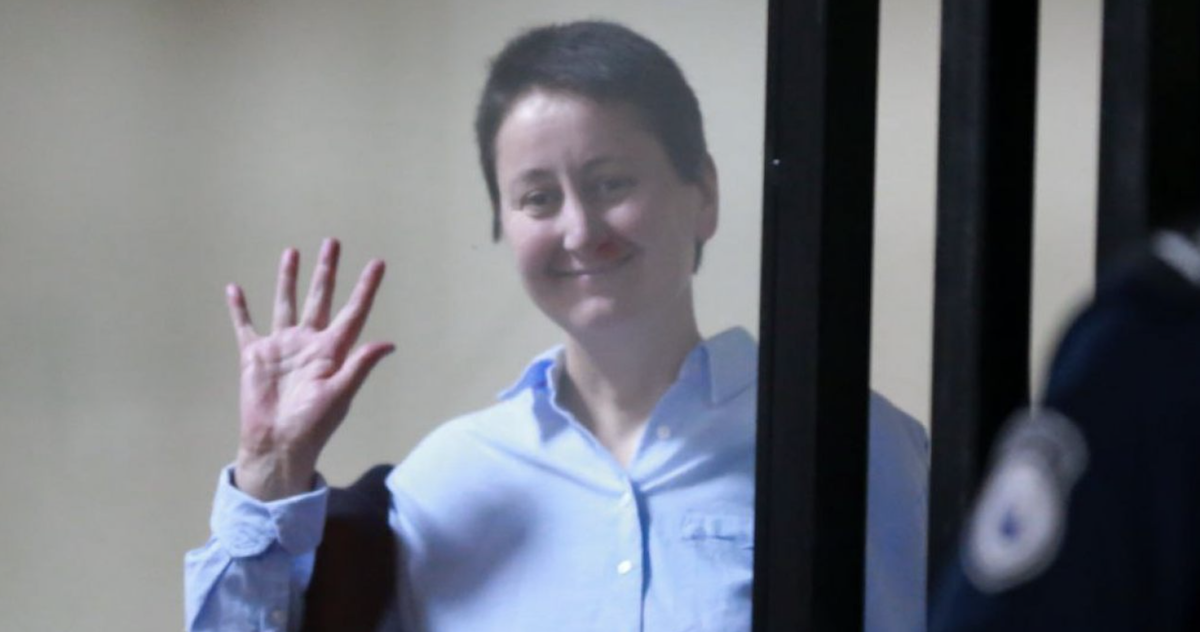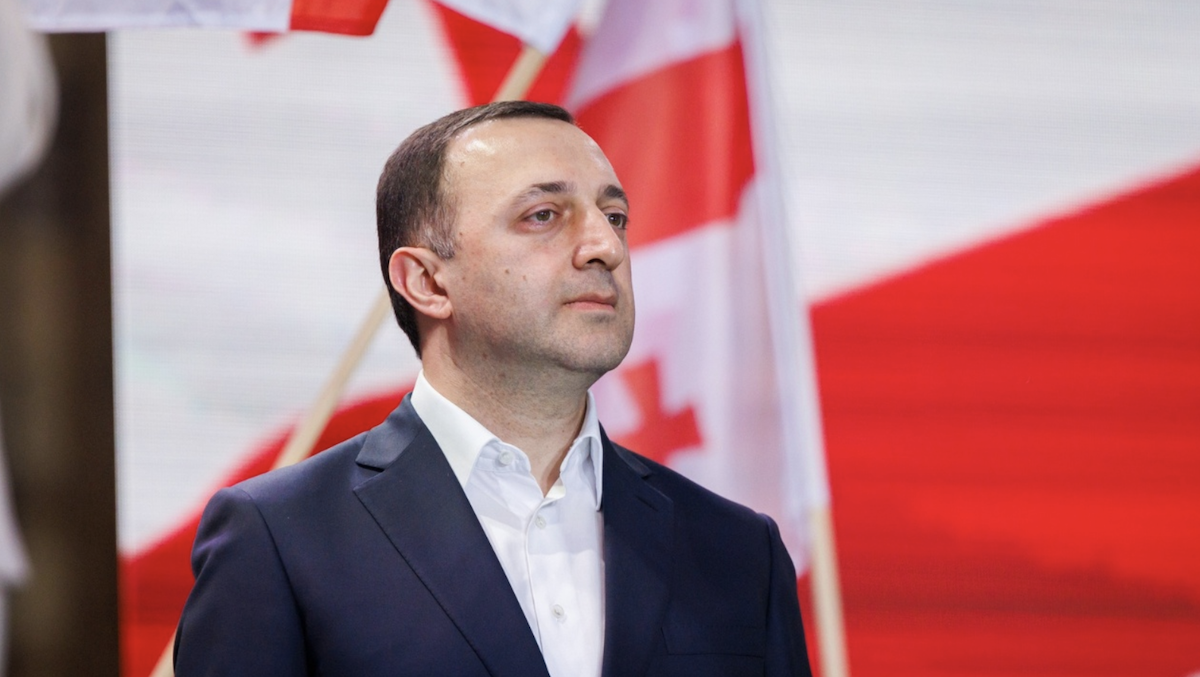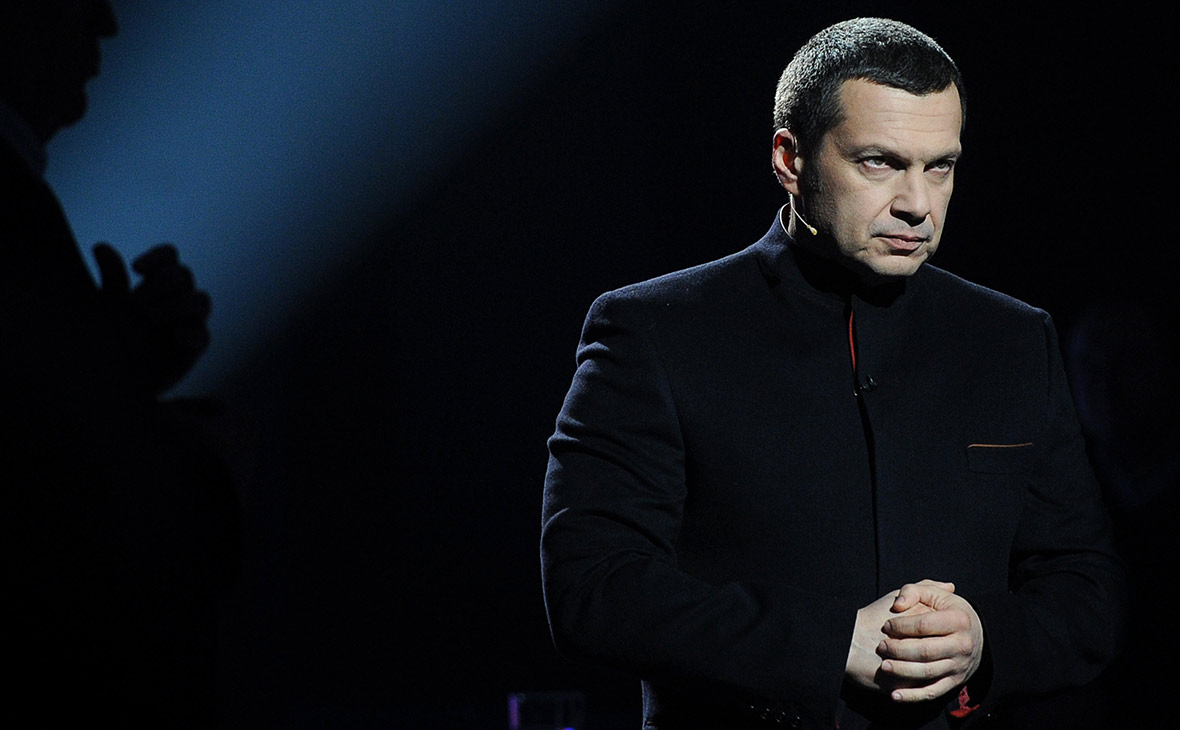How Georgia’s elderly are faring in isolation
Georgia has been in a state of emergency for over a month, and has implemented strict social distancing measures. Older people are not allowed to go out at all, as they are at risk.
There are five stories from JAMnews about how they are spending time in isolation.
Tsitso Purseladze, 84 years old, Tbilisi
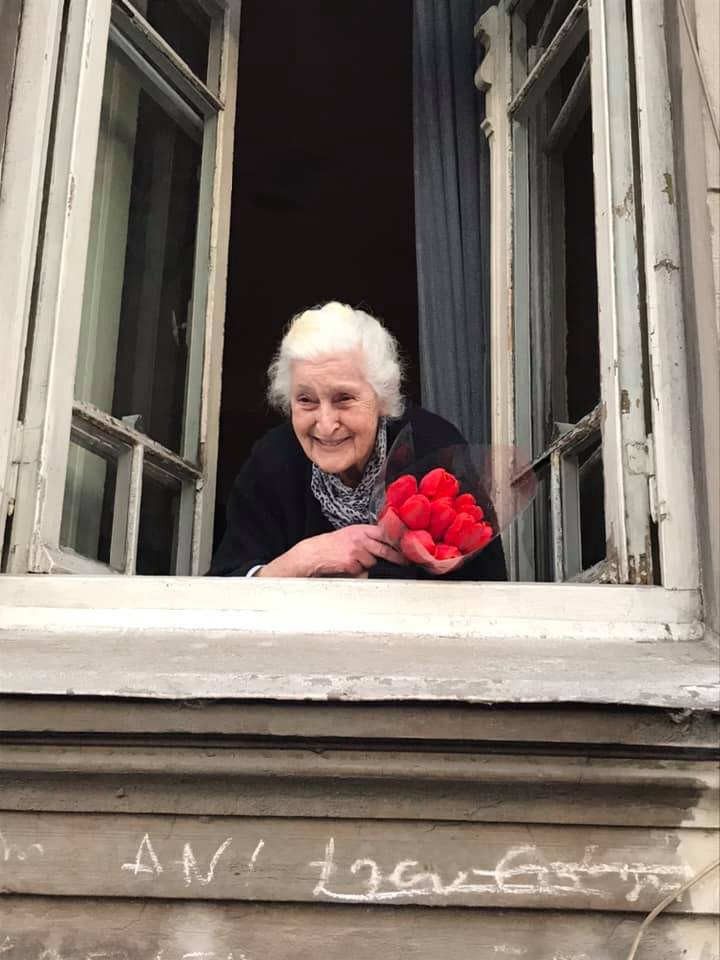
Tsitso Purseladze’s son congratulated her on her birthday by handing flowers through the window.
The windows of her house overlook a park owned by a park. It is empty due to the epidemic.
Tsitso says that the isolation regulations has not really changed much in her life. She rarely left the house. But it’s one thing when you don’t feel like it, and quite another when it is forbidden.
Tsitso says humanity has been ordered to reflect on values, as man has too recklessly intervened and upset the harmony of nature.
Tsitso is worried that instead of her, her son or grandchildren are forced to go to the store, and that they are more exposed.
Tamaz Abesadze, 82 years old, Tbilisi
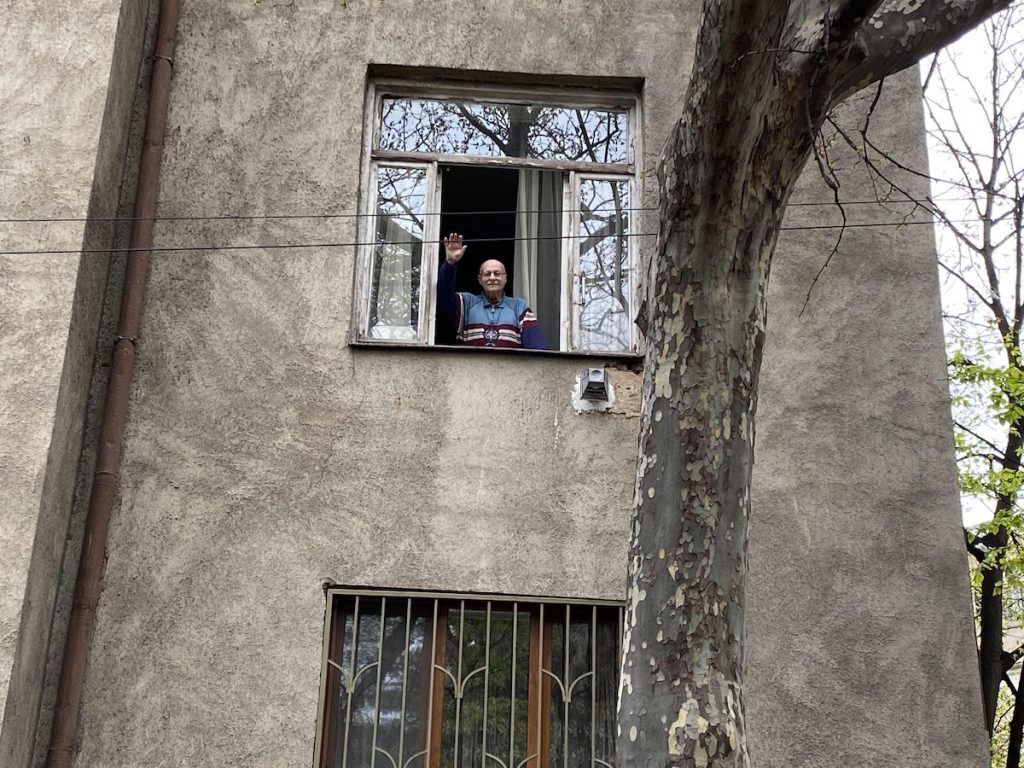
They’ll probably postpone the elections, they won’t have time to conduct the election campaigns, he says. Now the main thing is to invent a vaccine and end the coronavirus.
The state of emergency has not particularly affected his life. Hi wife is all day at work, and he is alone at home. In order to occupy himself with something, he began to cook.
His wife especially likes the lobio cooked by him, or beets, mashed with tkemali.
Before the pandemic, he helped his friend, a specialist in government, work on the book. Nico went blind, and Tamaz found him the necessary articles on the Internet. They have a long friendship. In 1961, together they graduated from the institute – the first graduation of the Faculty of Computer Engineering.
Abesadze is a fan of the internet – especially jazz music. When he was younger he would have to ditch class to go listen to Symphojazz show on the BBC, which began at 13.30.
Now he plays chess, reads books, solves crosswords – another hobby of Tamaz Abesadze.
Sports are lacking, though. The pandemic stopped all competitions, including tennis, which he practiced in his youth, and even played on the national team.
“I have lived an interesting life. But you can never think that you tried everything in the world. Recently, I was overwhelmed by the idea of conducting a study on the topic of self-regulating hierarchical structure, that is, is it possible to connect the structure of public administration with the functionality of the human body. But I realized that I don’t have enough energy,” says Tamaz Abesadze.
Darejan and Sergo Macharashvili, 69 and 79 years old, Sachkhere, Korbouli village
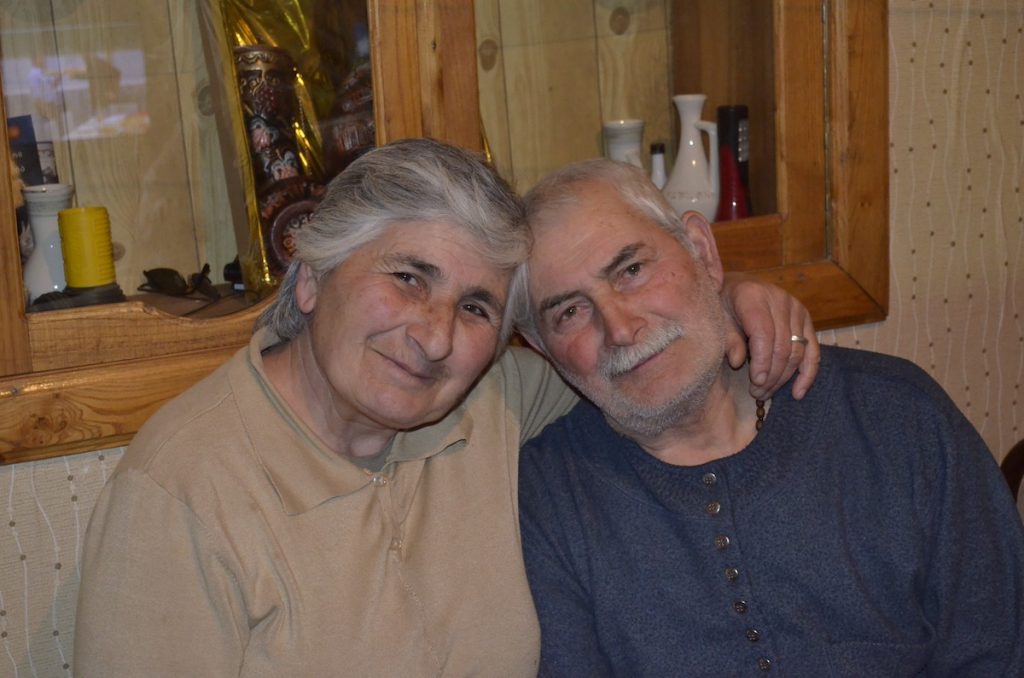
Darejan: There are no problems. We have our stocks of food. Plus chickens, a garden. Giorgi’s grandson brought food from the city so as not to have to leave the house. The only thing that bothers her husband is a pacemaker, and it’s time to see a doctor for a check, but it’s not clear how to get to Sachkhere.
Sergo: We are sitting at home. After stenting, I didn’t go far from home after the coronary stent. We miss our relatives, people in general.
Darejan: Now we play backgammon together, then cards. We have fun as we can. I will say this – it’s easier in war. You know when to hide, from whom to hide, and now the devil knows what.
We’re OK – but what about the young who have no work and no pensions? Things are definitely harder on them than on us.
Natela Tsertsvadze, 80 years old. Tbilisi care homy ‘My family’
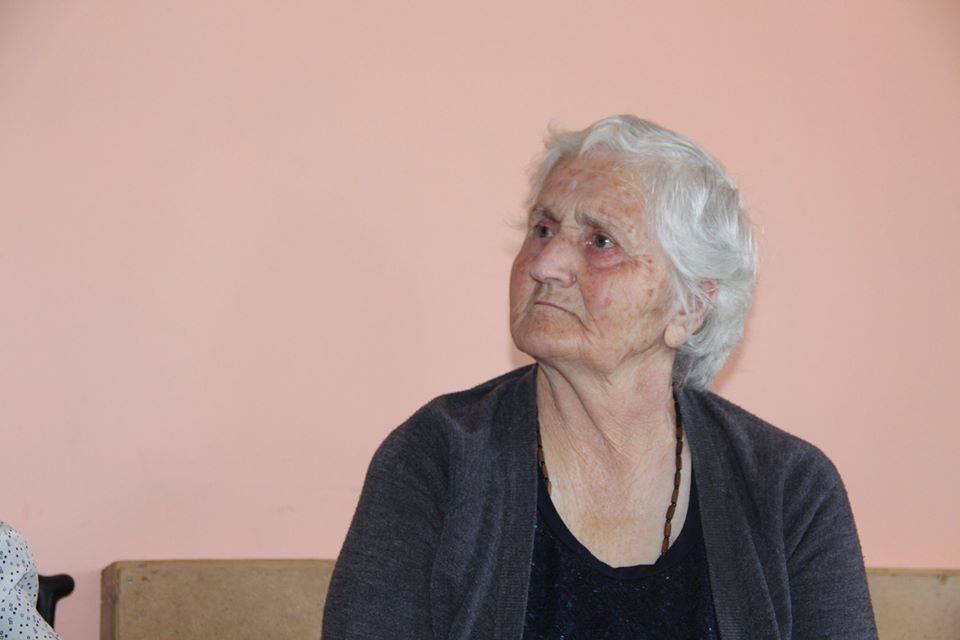
I feel sorry for Georgia. Sorry for the people. Especially the youth.
I have nothing to complain about. Heat, a roof over your head. Three meals a day.
I remember the war. Then it was worse. Now at least there is plenty of bread. But this trouble will pass, the main thing is that peace remain.
Manana Baratashvili, 96 years old, Tbilisi
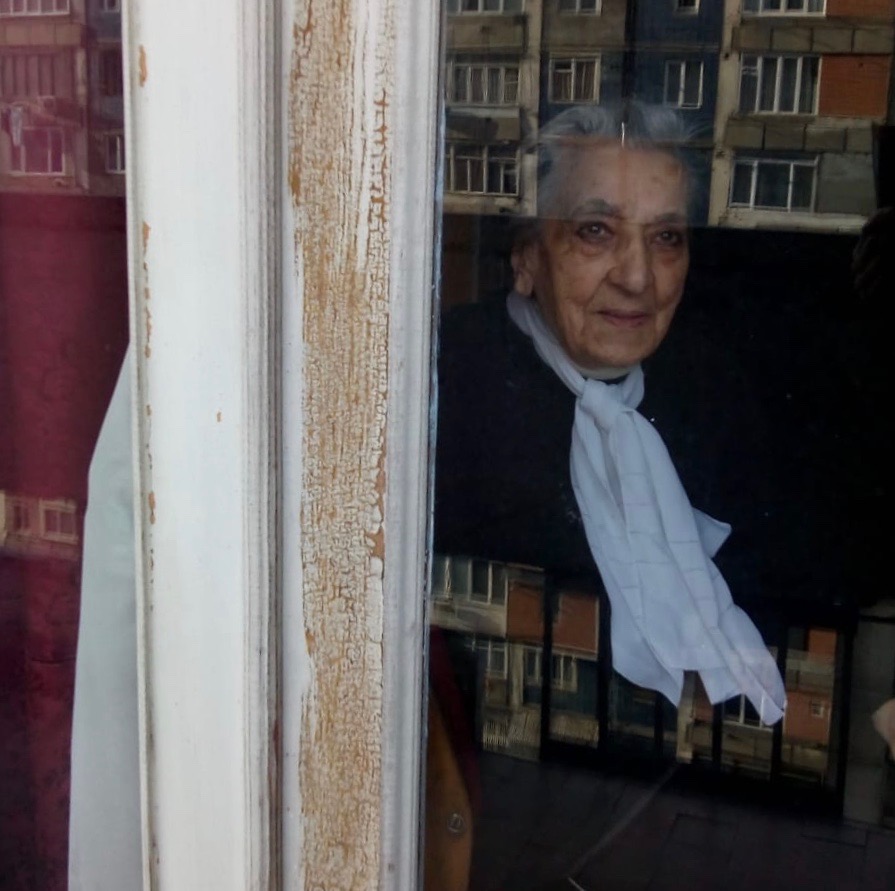
I had a tenth operation. This time at heart. I managed to live to the pandemic.
A nightmare, of course. Hundreds of people are dying. It’s good that in Georgia it’s not as hard as in other countries.
It’s a sin for those of us who are at home to complain. Those who are in a foreign land have it much harder. I live alone. I love my loneliness. My sight isn’t so good, but I continue to read. I learn about the events on TV. My relatives bring me food.
The trouble that has befallen us showed that we have very good doctors. This the whole world has seen. And the young have someone to take an example from. It is only necessary to strive for education.












